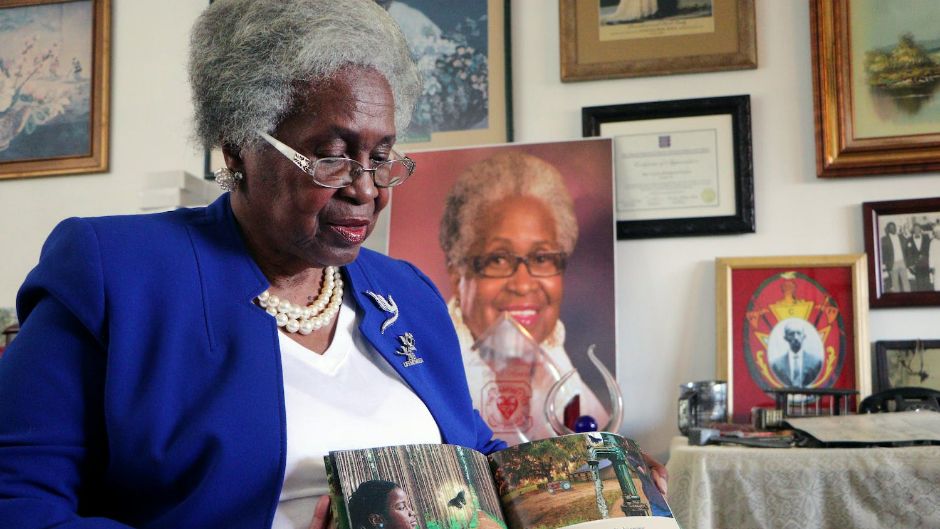“I am Black history,” said Lizzie Polly Robinson Brown Jenkins, the founder and president of the Real Rosewood Foundation, Inc. The second-generation Rosewood historian opened the conversation for the Center for Ethics and Public Service’s Legal Profession Program panel discussion, “A Discussion on the Rosewood Massacre,” centering her remarks on the importance of Black history.
Other panelists included Raegan Miller, a Florida Freedom to Read Project representative, and Joel Jenkins, a linguistics Ph.D. candidate at Indiana University Bloomington. Over 30 students, administrators, and community members attended the recent CEPS event.
As an educator, historian, and researcher, Lizzie Jenkins spoke on how she has used the stories passed on to her by family members who survived the Rosewood Massacre. Their strength and encouragement led Rosewood to be one of the first examples of compensation from the Florida legislature. Lizzie Jenkins grew up when there were few depictions of Black children in books, and her research inspired her to write a children’s book, “Lizzie’s Rosewood Race,” to preserve this history.
Although January 1, 2023, marked a century since the Rosewood Massacre, the year began with Florida governor, Ron DeSantis, banning state public schools from teaching the pilot AP African American Studies course. DeSantis denounced the curriculum as “contrary to Florida law.”
Miller joined the conversation and described the foundation of the parent-led group and their efforts to protect students’ right to access information and ideas. She shared their experiences advocating at school board meetings and the legal implications of censorship. The group has compiled a list of books under review in school districts statewide. As participants reviewed the list of almost 1,000 books, Miller asked law students to be particularly mindful of the language used to describe these books and what interest it serves to limit access to them.
To demonstrate a careful analysis, Joel Jenkins gave an insightful presentation on linguistics and the law. By referencing studies in forensic linguistics, he elaborated on linguistic profiling, noting, “whereas ‘racial profiling’ is based on visual cues that lead to speculation of the racial background of individuals, ‘linguistic profiling’ is based on auditory cues that may include racial identification but also be used to identify other linguistic subgroups.” From there, he spoke about terms borrowed from the legal field, like intersectionality, that ultimately broadened understanding of systemic and structural racism.
Founded in 1996, the center is a law school-housed ethics education, experiential skills training, and community engagement program devoted to the values of ethical judgment, professional responsibility, and public service in law and society. The center’s mission is to educate law students to serve their communities as citizen lawyers.
The online panel discussion closed with a lively Q & A from participants. If you would like to view the forum, please click here.
Read more about the Center for Ethics and Public Service

